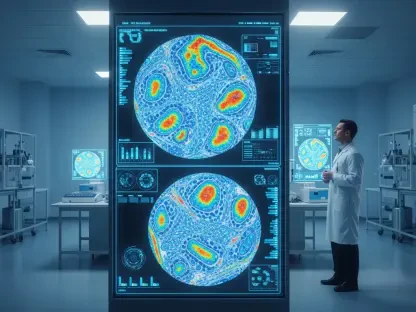The integration of artificial intelligence (AI) into precision medicine represents a transformative opportunity to improve healthcare outcomes across Africa. Precision medicine is an innovative approach that customizes medical treatments based on an individual’s unique characteristics, including genetic makeup, environmental factors, and lifestyle choices. AI technologies can analyze vast amounts of data to identify patterns and develop personalized treatment strategies that enhance the effectiveness of interventions and significantly improve patient outcomes. However, as promising as this advancement sounds, it comes with its own set of ethical challenges and practical considerations that need to be judiciously managed.
Developing AI-driven precision medicine in Africa has a unique context due to the continent’s diverse genetic backgrounds and varied healthcare challenges. For instance, the successful implementation of this advanced technology in any part of Africa could make significant strides in battling diseases that disproportionately affect the region, such as malaria and tuberculosis. Kenya has witnessed an AI system significantly improving the accuracy of malaria diagnoses by analyzing local patient data. Meanwhile, in South Africa, an AI tool known as CAD4TB utilizes machine learning to analyze chest X-rays, enhancing the detection of tuberculosis. Both scenarios indicate that precision medicine, powered by AI, holds the potential to revolutionize healthcare delivery within diverse communities in Africa.
Ethical Considerations in AI Integration
The integration of AI with precision medicine raises substantial ethical concerns that must be carefully navigated. Data privacy is a critical issue, as AI systems require massive datasets to function effectively. Ensuring the protection of patient data and maintaining confidentiality is paramount. In addition, algorithmic bias is a significant concern; if AI technologies are developed using non-representative datasets, they may perpetuate disparities in healthcare delivery rather than mitigate them. This is especially relevant in Africa, where diverse genetic variations must be considered to ensure accurate diagnoses and treatments.
Informed patient consent is another pivotal ethical consideration. Patients must be fully aware of how their data will be used and the potential risks and benefits associated with AI-driven precision medicine. Building trust within communities is essential for the successful adoption of this technology. Therefore, patients must understand that their data will be utilized for improving healthcare outcomes, and they must be assured their personal information will be securely protected. Clear accountability guidelines are necessary to oversee these AI systems as they become more autonomous in their decision-making processes, ensuring that healthcare providers remain responsible and transparent in their use of AI technologies.
Practical Steps for Implementation
Effective implementation of AI-driven precision medicine in Africa requires meticulous planning and collaboration among various stakeholders. One of the foremost steps involves creating comprehensive health databases that accurately reflect the local population’s demographics and disease profiles. This requires collaboration among universities, research institutions, and healthcare providers to compile large, representative datasets. Such databases enable the development of AI algorithms tailored to the unique healthcare needs of African communities, enhancing the accuracy and effectiveness of treatments.
Additionally, establishing clear ethical frameworks is vital to protect patient privacy, ensure informed consent, and promote equitable access to these technological advancements. Government agencies, technological companies, civil society organizations, and local communities must work together to govern the use of AI in precision medicine. Furthermore, healthcare professionals need proper training to use AI tools effectively while adhering to best practices and ethical guidelines. This holistic approach ensures that AI-driven precision medicine is implemented responsibly, maximizing benefits while minimizing potential risks.
Transforming Healthcare Outcomes
The incorporation of artificial intelligence into precision medicine offers a groundbreaking chance to enhance healthcare outcomes across Africa. Precision medicine tailors medical treatments to an individual’s distinct characteristics, such as genetic makeup, environmental factors, and lifestyle. AI can evaluate extensive data to uncover patterns and create personalized treatment strategies, significantly boosting intervention effectiveness and patient outcomes. However, this promising innovation brings ethical challenges and practical issues that must be carefully addressed.
Developing AI-driven precision medicine in Africa is uniquely challenging due to the continent’s diverse genetic backgrounds and healthcare issues. Successfully deploying this technology in Africa could advance efforts against diseases that severely impact the region, like malaria and tuberculosis. For example, in Kenya, an AI system has notably improved malaria diagnosis accuracy by analyzing local patient data. In South Africa, the AI tool CAD4TB uses machine learning to analyze chest X-rays, enhancing tuberculosis detection. These examples demonstrate that AI-powered precision medicine could revolutionize healthcare in Africa’s diverse communities.









